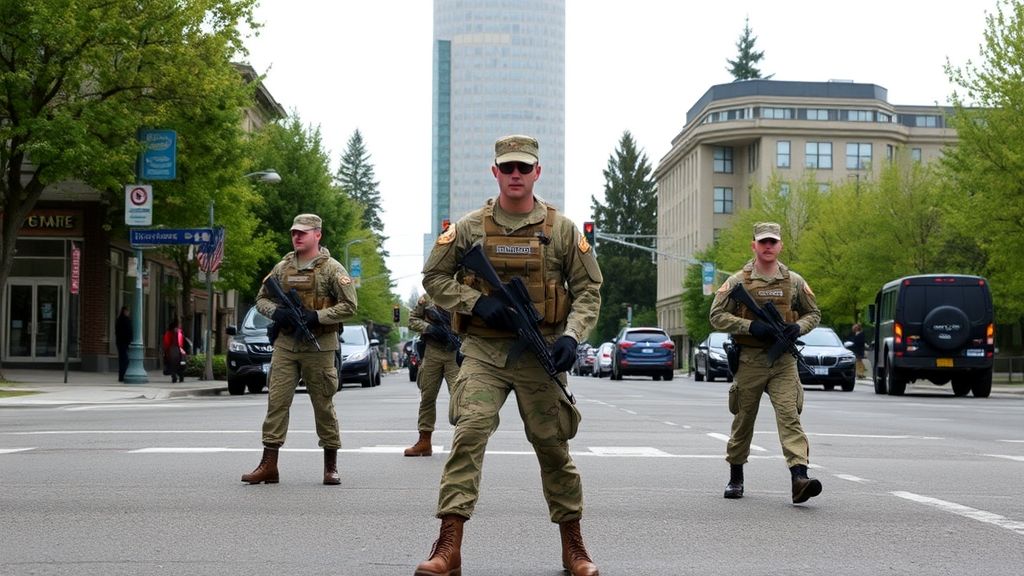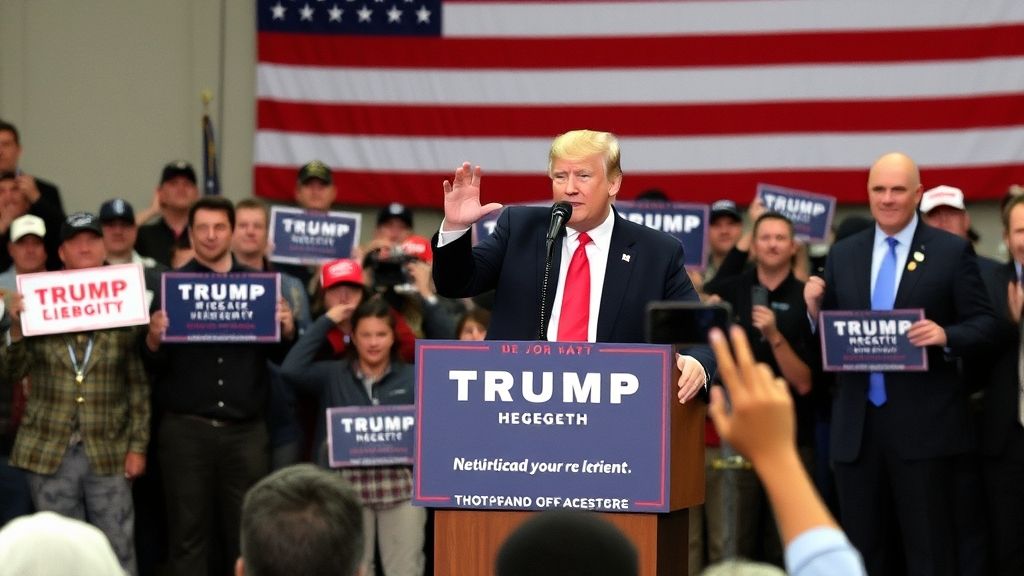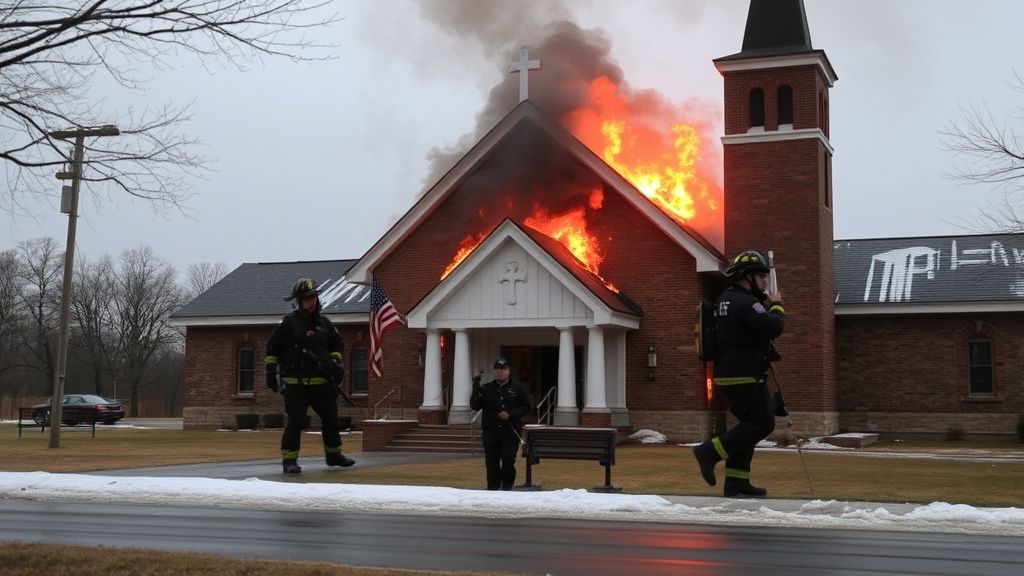The recent deployment of federal troops to Portland, Oregon, has ignited a fierce legal battle, with the state now taking the Trump administration to court. This unprecedented action raises critical questions about executive authority, federalism, and the role of law enforcement in civil unrest. Oregon’s lawsuit is not merely a local dispute; it’s a significant challenge to the federal government’s unilateral deployment of perso
el into a city amidst ongoing protests, sparking national debate and concern.
The Legal Basis for Oregon’s Lawsuit
Oregon’s lawsuit centers on the argument that the Trump administration acted without proper legal authority and in violation of established constitutional principles. The state contends that the deployment of agents from the Department of Homeland Security (DHS) and other federal agencies into Portland was an overreach of executive power, particularly given the lack of invitation or consent from state and local officials.
At its core, the lawsuit invokes the principles of federalism, the division of powers between the federal government and individual states. Oregon argues that the federal government ca
ot simply send its law enforcement agents into a state to quell civil disturbances without the explicit request or consent of the state governor or relevant local authorities. This principle is deeply rooted in American jurisprudence and is designed to prevent federal overreach and maintain a balance of power.
Furthermore, Oregon alleges that the federal agents engaged in unlawful actions, including arresting protesters blocks away from federal property and without clear probable cause. This raises serious concerns about civil liberties and the rights of citizens to assemble and protest peacefully. The state’s legal team is likely drawing on precedents related to civil rights, due process, and the limitations of federal authority in domestic matters.
Federal Justification and the Counterarguments
The Trump administration, through DHS, has defended the deployment by citing the need to protect federal property and restore order in Portland, which has seen prolonged and sometimes violent protests following the murder of George Floyd. The administration has characterized the actions of some protesters as unlawful and dangerous, arguing that local law enforcement was unable to contain the situation.
The administration’s justification often points to the Insurrection Act of 1807, which allows the President to deploy U.S. military or federalized National Guard troops to suppress public insurrection or rebellion. However, the deployment in Portland has primarily involved DHS agents, not the military, and the legal interpretation of “insurrection” in this context is a key point of contention. Critics argue that the scale and nature of the protests in Portland do not meet the threshold for invoking such broad federal powers.
Another significant argument from the federal side revolves around the protection of federal buildings and perso
el. DHS is responsible for securing federal property, and the administration contends that the actions of protesters posed a direct threat to these facilities and the individuals working within them. This is a legitimate governmental concern, but the method and scope of the federal response remain the subject of intense legal scrutiny.
Implications for Federalism and Civil Liberties
The Oregon lawsuit has profound implications for the balance of power between federal and state governments. If the Trump administration’s actions are deemed lawful, it could set a dangerous precedent for future federal interventions in state affairs, potentially eroding the autonomy of states and local communities. This could lead to a more centralized form of governance, where the federal government has greater latitude to dictate how states manage internal affairs, even in the absence of a declared national emergency.
Conversely, a ruling in favor of Oregon could strengthen the principle of federalism and reinforce the limitations on executive authority. It would send a clear message that federal power is not absolute and must be exercised within constitutional boundaries, respecting the roles of state and local governments.
Moreover, the case raises critical questions about the protection of civil liberties, particularly the right to protest. The alleged actions of federal agents, such as unexplained arrests and the use of crowd control tactics, have been criticized as chilling free speech and the right to assemble. The outcome of this lawsuit could influence how future protests are policed and the extent to which individuals can engage in dissent without fear of federal interference.
Real-World Applications and Broader Context
This legal battle is not an isolated incident but is part of a broader national conversation about policing, protest, and the role of government in a democracy. The imagery of federal agents in unmarked vehicles making arrests in Portland has resonated with many who are concerned about the militarization of domestic law enforcement and the erosion of democratic norms.
For instance, similar tensions between federal and local authorities have arisen in other cities where protests have occurred. While Oregon’s lawsuit is particularly prominent due to its legal challenge, the underlying issues are felt across the country. This underscores the importance of understanding the legal frameworks that govern federal and state interactions, especially during times of social upheaval.
Actionable Insights for Citizens and Policymakers:
Understand Your Rights: Familiarize yourself with your rights during protests, including the right to assemble, speak freely, and the limitations of law enforcement. Resources from organizations like the ACLU can be invaluable.
Engage in Local Governance: Participate in local and state elections and engage with your elected officials to express your views on issues of federalism and civil liberties.
Stay Informed: Follow legal developments and news from reputable sources to understand the ongoing implications of cases like Oregon’s lawsuit.
Advocate for Clear Policy: Policymakers should focus on establishing clear guidelines and protocols for federal intervention in local matters, ensuring transparency and accountability.
Conclusion
Oregon’s lawsuit against the Trump administration over the deployment of federal troops in Portland is a watershed moment in the ongoing debate about executive power and federalism. The legal arguments presented have far-reaching implications for the balance of authority between federal and state governments and the protection of fundamental civil liberties. As this case progresses, it will undoubtedly shape the future landscape of civil unrest management and the constitutional boundaries of federal intervention, offering a critical examination of democracy in action.



